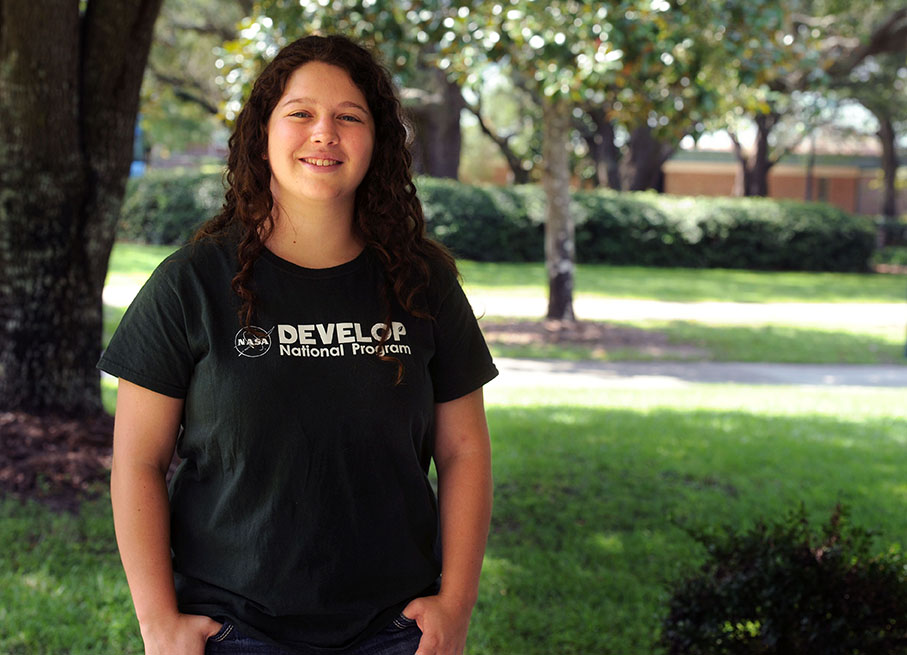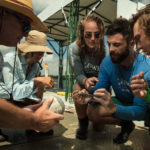UWF student addresses environmental issues through NASA DEVELOP Program
A University of West Florida alumna and current graduate student Talia Smith experienced the opportunity of a lifetime when she spent the summer participating in the NASA DEVELOP Program at Goddard Space Flight Center in Greenbelt, MD.

Smith, who earned a bachelor’s degree in environmental science and a certificate in geographic information systems, or GIS, and is currently pursuing a master’s degree in environmental science, was part of a team that worked on the “Argentina Oceans” project, using NASA’s Earth Observing System, or EOS, to map threats to the Southern Right Whale.
“This experience was more than I ever expected,” Smith said. “I was able to gain hands-on experience in the applied sciences field and made valuable connections at NASA, which is where I hope to one day work. As an added bonus, I was able to pursue my passion for helping threatened species and my efforts contributed to solving a real-world environmental issue.”
In addition to gaining firsthand experience in addressing environmental issues, Smith was also able to network with high-profile guest speakers, such as Dr. John C. Mather, a Nobel Prize winner, and attend lectures on topics such as global climate research through NASA.
Dr. Matthew Schwartz, chair of the Department of Environmental Studies and the Department of Chemistry at UWF, said experiences like Smith’s NASA DEVELOP internship are invaluable in the professional development of the next generation of scientists.
“By engaging in cutting edge research in the environmental sciences, Talia was able to put into practice skills learned in her undergraduate program, examine an exciting potential career path, and demonstrate the value of a UWF STEM education to a national agency,” Schwartz said. “We are excited by, and proud of, her accomplishments and are ecstatic that she is bringing that experience back to UWF as she joins our graduate program in Environmental Science.”
Smith credits UWF’s extensive environmental science and GIS programs for giving her the knowledge and experience needed to succeed in the NASA DEVELOP program.
“All of the classes I took at UWF were very beneficial for my experience at NASA,” she said. “In many classes, I wasn’t just learning from a textbook; I was looking at real cases to find real-world solutions. I was first introduced to using GIS and satellite images to solve issues for class projects, and at NASA, I used similar tools to find solutions for real environmental situations.”
For additional information about the NASA DEVELOP Program, visit develop.larc.nasa.gov. Learn more about Smith’s work for the Argentina Oceans Project by viewing this Youtube video.


